Prof. Čarna Brković elected SIEF President
10.06.2025
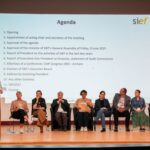
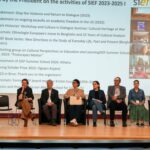
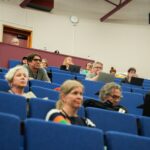
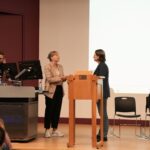
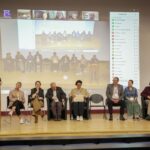
At the SIEF2025 Congress, our professor, Čarna Brković, was elected President of SIEF! She will serve alongside the Executive Board, which includes Sophie Elpers (Executive Vice President), Tom DuBois (Vice President), Ioana Baskerville, Hande Birkalan-Gedik, Nicolas Le Bigre, Susanne Österlund-Pötzsch, Saša Poljak Istenič, Kinga Povedák, and Daniela Salvucci.
The International Society for Ethnology and Folklore (SIEF) is the leading international organization for European Ethnology, Folklore Studies, Cultural Studies, Cultural Anthropology, and related fields. For over half a century, SIEF has fostered collaboration and exchange among scholars worldwide.
With around 900 members from across the globe, SIEF supports 14 working groups, the flagship journals Ethnologia Europaea and Cultural Analysis, a book series with Berghahn Books, a Young Scholars Working Group, and much more: https://www.siefhome.org/
New edition of the Zeitschrift für Empirische Kulturwissenschaft / Journal for Cultural Analysis and European Ethnology
13.05.2025

Issue 1 of the Zeitschrift für Empirische Kulturwissenschaft / Journal for Cultural Analysis and European Ethnology (ZEKW) has been published. As usual, you can find all articles, reports and reviews digitally and free of charge at www.zekw.de.
We would particularly like to draw your attention to the issue's forum on the “Politicization of Science” and the text by Prof. Dr. Čarna Brković “Von der Suspendierung zum Engagement und zurück [From Suspension to Engagement and Back]”.
Mourning Raphael Thörmer
24.03.2025

We mourn the loss of our dear colleague Raphael Thörmer. We are deeply saddened by his death. After studying cultural anthropology/folklore, art history and political science at JGU Mainz, Raphael Thörmer worked at the LVR Open-Air Museum Kommern, where he was a scientific advisor for house and building research from 2022.
Despite his many professional commitments, Raphael Thörmer has also offered seminars in Mainz as a lecturer with great enthusiasm and drive. With great expertise, humor and never-ending enthusiasm, he was able to inspire the next generation of scientists for museum work - mostly on site in Kommern. Together with Master's students, Raphael Thörmer researched the emergency church program in Mainz and the surrounding area as part of his own teaching research project.
The doctoral colloquia, which were held at the Kommern Open-Air Museum from 2015 to 2019 thanks to Raphael Thörmer's active support, will remain unforgotten. He was greatly appreciated by colleagues and students for his tireless commitment, helpfulness and warm manner. Our deepest sympathies now go out to his family and colleagues in Kommern.
Raphael will be fondly remembered by all who knew him.
Dr. Britta Ohm in Conversation: Erleuchtung garantiert – Der Podcast
06.03.2025

New Ostklick interview with Dr. Alina Jašina-Schäfer
17.02.2025
You and Europe Scholarship Programm for international MA students
28.12.2024
Interested in the MA Cultural Anthropology at JGU? The You and Europe Scholarship Programme, which is offered by the Alfred Toepfer Foundation F.V.S. in cooperation with the German National Academic Foundation (Studienstiftung des deutschen Volkes), is available to finance your studies. The scholarship is aimed at European students who wish to complete their entire Master's programme at a German university and have a strong interest in European exchange.
The scholarship programme is open to the following countries in the coming round: Belgium, Bosnia and Herzegovina, Bulgaria, Croatia, Cyprus, Denmark, Estonia, France, Georgia, Israel, Italy, Kosovo, North Macedonia, Portugal, Romania, Serbia, Spain, Switzerland and Turkey.
The scholarship programme is aimed at students of all disciplines and for binational courses at universities and universities of applied sciences. It is not available to students at universities of art and music or at universities of applied sciences in the visual and performing arts, design, film and music programmes.
- A scholarship of at least €300 per month up to a maximum of €1155 (plus additional benefits such as health insurance, family allowance etc.), this is calculated according to income (the BAföG calculator can be used as a reference).
- Two annual network meetings on European topics and optional participation in Europe-specific educational programmes offered by the Studienstiftung. The costs for accommodation, meals and programme fees are covered, travel costs are subsidised.
- Admission to the Studienstiftung's peer programme. On request, the Studienstiftung will appoint a Studienstiftung scholarship holder at the university location who will act as a direct contact person for new arrivals and provide advice and support on site.
- For students from EU countries and EU accession countries, admission to the Studienstiftung scholarship programme.
Guest lecture by Prof. Brković at Harvard University
02.12.2024
On October 9, Prof. Dr. Brković gave a lecture titled "Racialized Socialism: Humanitarian Imaginaries in the Yugoslav Red Cross During the Nonaligned Movement" at the Center for European Studies at Harvard University. She is a Visiting Fellow there during the Winter 2024 semester. More information can be found here.
 
As part of her stay in the U.S., Prof. Dr. Brković also gave three more lectures at the University of Illinois, Indiana University, and Syracuse University, where she presented her new book.
New special issue of Journal for Culture and History of the Germans in Eastern Europe, edited by Dr. Alina Jašina-Schäfer (JGU) and Nino Aivazishvili-Gehne (IOS Regensburg)
27.08.2024
 Dr. Alina Jašina-Schäfer, our research associate in Cultural Studies/European Ethnology, together with Nino Aivazishvili-Gehne (IOS Regensburg), has published a new open access special issue, including the introduction, in the Journal for Culture and History of the Germans in Eastern Europe titled “Migration, Post-Socialism, and Diasporic Experiences: Fragmented Lives, Entangled Worlds”. This issue critically examines the migration and diasporic experiences of people from the former Soviet Union. It delves into the complex histories of migrants, their present realities, and future aspirations. The collection specifically explores the relevance of "(post-)socialism" in interpreting the nuanced transformations within diasporic life. It examines how connections are forged, disconnections are navigated, and how past experiences are continually intertwined and reconfigured, thereby shaping the post-migration context.
Dr. Alina Jašina-Schäfer, our research associate in Cultural Studies/European Ethnology, together with Nino Aivazishvili-Gehne (IOS Regensburg), has published a new open access special issue, including the introduction, in the Journal for Culture and History of the Germans in Eastern Europe titled “Migration, Post-Socialism, and Diasporic Experiences: Fragmented Lives, Entangled Worlds”. This issue critically examines the migration and diasporic experiences of people from the former Soviet Union. It delves into the complex histories of migrants, their present realities, and future aspirations. The collection specifically explores the relevance of "(post-)socialism" in interpreting the nuanced transformations within diasporic life. It examines how connections are forged, disconnections are navigated, and how past experiences are continually intertwined and reconfigured, thereby shaping the post-migration context.
https://doi.org/10.1515/9783111369204
Welcome to Dr. Grit Wesser, DAAD visiting lecturer in 2024 summer semester
01.04.2024
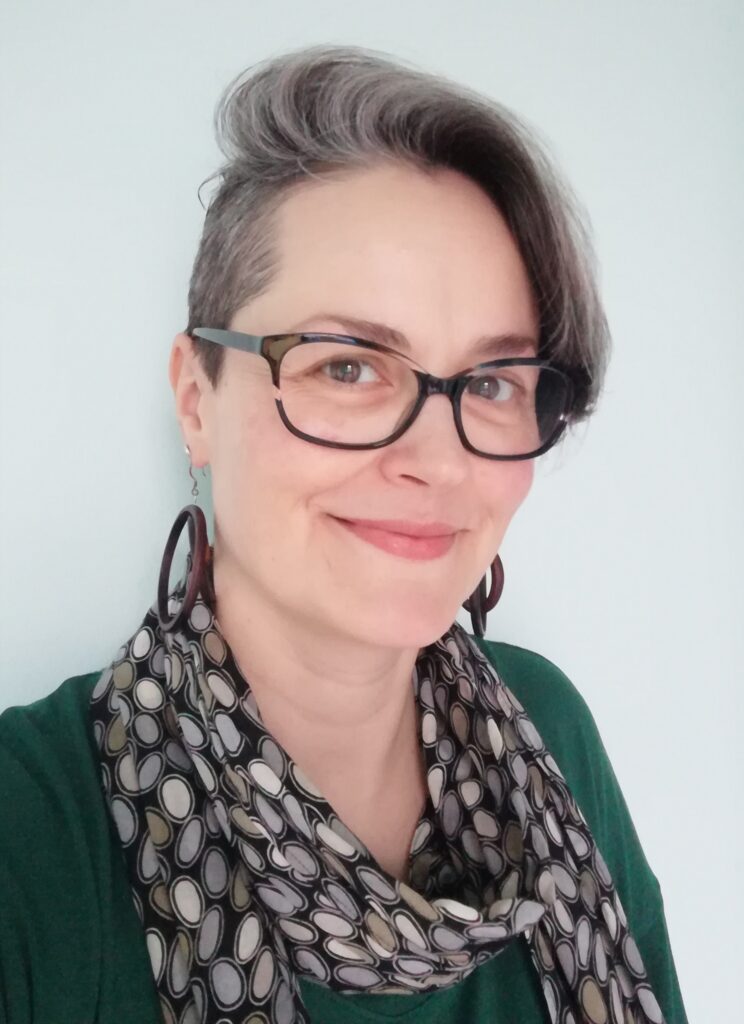
New issue of Berliner Blätter, Vol. 88 (2023): Troubling Gender. Anthropological Perspectives on Gender Politics in/of Europe
22.03.2024

In recent years, the politics of gender and sexuality have turned extremely hostile across Europe. Long fought for rights and antidiscriminatory politics have come under heavy attack, while Gender Studies programs have been banned. In tandem, feminist arguments are being instrumentalized by right-wing movements and gender/sexuality are used as markers of both progress and backwardness within the postsocialist European landscape reproducing old and creating new hierarchies within the societies and between them. »Troubling Gender« brings together queer/feminist voices and ethnographic analyses from the Eastern and Western European contexts seeking to make sense of these developments and of their local and regional articulations; it examines the possibilities for solidarity across different positionalities and engages with diverse histories of struggle.
Information for first-year students
22.03.2024
WELCOME TO ALL NEW STUDENTS - Who belongs to FTMK?
Are you starting your studies in one of the subjects at the Institute of Film, Theater, Media and Cultural Studies (FTMK) in the 2024 summer semester? We would like to invite you to the interdisciplinary welcome event for all first-year students at FTMK, not only to introduce you to the integrated study area "Culture - Theater - Film", but also to introduce you to members of the institute's staff:
When? Tuesday, 9 April 2024, from 10 to 11 a.m.
Where? Room P11 (ground floor) in the Philosophicum lecture hall building on campus, Jakob-Welder-Weg 18
WELCOME TO THE SUBJECT! Study-specific introductions for the BA
So that you can also get to know the lecturers responsible for your respective subject, get help in using JOGU-StiNe and ask all your questions about starting your studies at FTMK, the academic advisors will offer subject-specific BA introductory events following the institute welcome. Here you will learn all the details about the specific course of study, your examination regulations and course registration.
When? Tuesday, 9 April 2024, from 11:30 a.m.
Where? Philosophicum, Jakob-Welder-Weg 18
Who? Cultural Anthropology: Room P13
WELCOME (BACK?) Study-specific introductions for the MA
Regardless of whether you are starting your Master's programme in Mainz after completing a BA degree (at FTMK) or have found your way to JGU from another university, we also want to make it easier for you to continue your studies.
MA Cultural Anthropology
When? Tuesday, 9 April 2024, from 2 pm
Where? Philosophicum, Jakob-Welder-Weg 18, Room P2
You can find more information about the start of the programme here (in German).
MA graduate Mara Hoffmann awarded 2023 Lutz Röhrich Prize
02.11.2023
The 2023 Lutz Röhrich Prize of the Walter Kahn Fairy Tale Foundation (Märchenstiftung Walter Kahn) was awarded to our graduate Mara Hoffmann, M.A.. Her Master's thesis entitled "The 'Sleeping Beauty of the Palatinate' - a cultural anthropological look at the fairytale village of Dörrenbach" was supervised by PD Dr. Christina Niem and Jun.-Prof. Dr. Mirko Uhlig. The Märchenstiftung's award ceremony was held at the same time as the European Fairy Tale Award in Volkach am Main at the end of September. Congratulations, Mara!
Read more in the accompanying press release (in German).
New issue of the journal ‘Volkskunde in Rheinland-Pfalz’
05.09.2023
 The new issue of the journal ‘Volkskunde in Rheinland-Pfalz’ has been published, and for the first time all content is freely available through Open Access. The current issue primarily brings together contributions from students of cultural anthropology in Mainz, who present the results of their final theses in essay form. These are six Bachelor’s and two Master’s theses. There was already such a focus in 2012. The issue at that time mainly offered summaries of master’s theses that depicted the broad spectrum of research and teaching at the Mainz location. Once again, students are given the opportunity to make their research accessible to an interested public.
The new issue of the journal ‘Volkskunde in Rheinland-Pfalz’ has been published, and for the first time all content is freely available through Open Access. The current issue primarily brings together contributions from students of cultural anthropology in Mainz, who present the results of their final theses in essay form. These are six Bachelor’s and two Master’s theses. There was already such a focus in 2012. The issue at that time mainly offered summaries of master’s theses that depicted the broad spectrum of research and teaching at the Mainz location. Once again, students are given the opportunity to make their research accessible to an interested public.
Volume 38 (2023) can be found at http://digitale-kulturanthropologie.de/.
New publication and volume by Milana Čergić
24.05.2023
Dr. des. Milana Čergić, research associate in Cultural Anthropology/European Ethnology, together with Mehdi Belasri and Andrea Umberto Gritti, has published a new volume of the journal Balkanologie: Revue d’études pluridisciplinaire under the title "Entrepreneurs et mutations économiques dans les Balkans, XIXe-XXIe siècle [Entrepreneurs and economic change in the Balkans, 19th–21st century]". Among the various contributions on entrepreneurship in the Balkans is Dr. Čergić’s paper "Un businessman « poussé » par l’élite politique ou un bienfaiteur ? Négocier le succès entrepreneurial en Bosnie-Herzégovine [A Businessman “Pushed” by the Politicians or a Benefactor of Society? Negotiating Entrepreneurial Success in Bosnia and Herzegovina]".
MSCA MasterClass for Postdocs 14–16 June 2023
10.05.2023
In November 2023, the FORTHEM Alliance once again decisively expanded its range of activities and is now also increasingly turning its attention to supporting young scientists. To this end, the nine partner universities have set up their own FORTHEM Academy for Early-Stage Researchers. Over the next four years, FORTHEM will offer courses in the following areas:
- Networking of young academics with academics from partner universities at all career levels
- Diverse training in the form of workshops, MasterClasses, etc.
- Trainings and activities around the topic of Open Science (FORTHEM Journal, Science Slams, etc.)
- Setting up a FORTHEM mentoring programme
- Reforms in the assessment of science
- Strategy development for sustainable support of young scientists within the framework of the FORTHEM Alliance
As one of the first measures, only one MasterClass will be held for postdocs who plan to conduct their own research project at one of the FORTHEM universities while applying for a Marie Skłodowska Curie Postdoctoral Fellowship from the European Commission. Participants in the MasterClass will receive a detailed introduction to the topic and the application formalities, meet former reviewers, learn from successful applicants and receive personal support and a wide range of information material in the event of an application.
For further information on the MasterClass and the link to the registration as well as an overview of the FORTHEM Academy for Young Scientists, please click on the following links:
FORTHEM Academy for Early-Stage Researchers
FORTHEM MasterClass for MSCA Postdoctoral Fellowships
Visiting Professor from Spain (28 April–5 May 2023)
26.04.2023
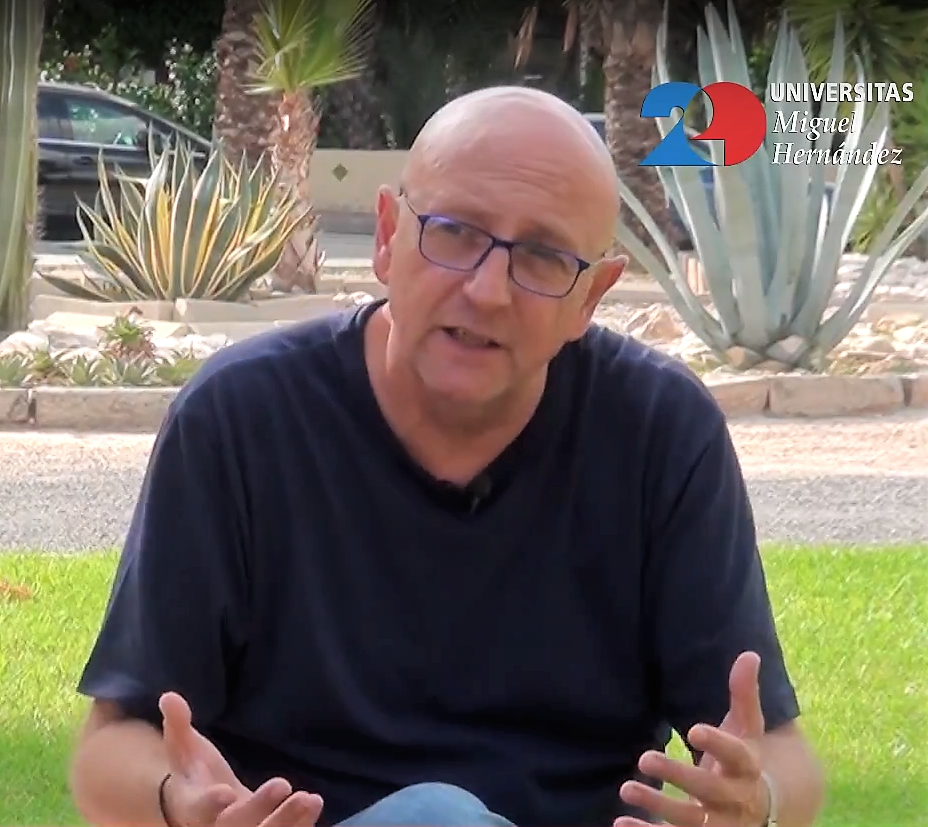
We are pleased to welcome Professor for ‘Antropología Social’ Dr. Antonio Miguel Nogués Pedregal von der Universität Miguel Hernández in Elche, Spain, as our guest. He is visiting Johannes Gutenberg University for the third time as part of the Erasmus+ programme and will be giving lectures and seminars. As a social and cultural anthropologist, Nogués Pedregal researches in particular on the topics of tourism and leisure, festivals, customs and rituals, as well as on questions of cultural heritage. In addition to heritage studies, political anthropology is another focus of his research and teaching.
Marie Skłodowska Curie Fellow Milorad Kapetanović
16.04.2023
 We are very pleased to welcome Milorad Kapetanović as a Marie Skłodowska Curie Fellow for the 2023 summer semester. Dr. Kapetanović is a Marie Skłodowska Curie Postdoctoral Fellow at the Institute of Habsburg and Balkan Studies of the Austrian Academy of Sciences. Kapetanović will offer two courses in the SoSe for Mainz students: ‘Wild Peoples: Gender, Race and Desire in the Colonial Gaze of European Ethnology and Beyond’ and ‘Feminist Approaches to Pornography: Abuse, Liberation and the Marketisation of Images’.
We are very pleased to welcome Milorad Kapetanović as a Marie Skłodowska Curie Fellow for the 2023 summer semester. Dr. Kapetanović is a Marie Skłodowska Curie Postdoctoral Fellow at the Institute of Habsburg and Balkan Studies of the Austrian Academy of Sciences. Kapetanović will offer two courses in the SoSe for Mainz students: ‘Wild Peoples: Gender, Race and Desire in the Colonial Gaze of European Ethnology and Beyond’ and ‘Feminist Approaches to Pornography: Abuse, Liberation and the Marketisation of Images’.
